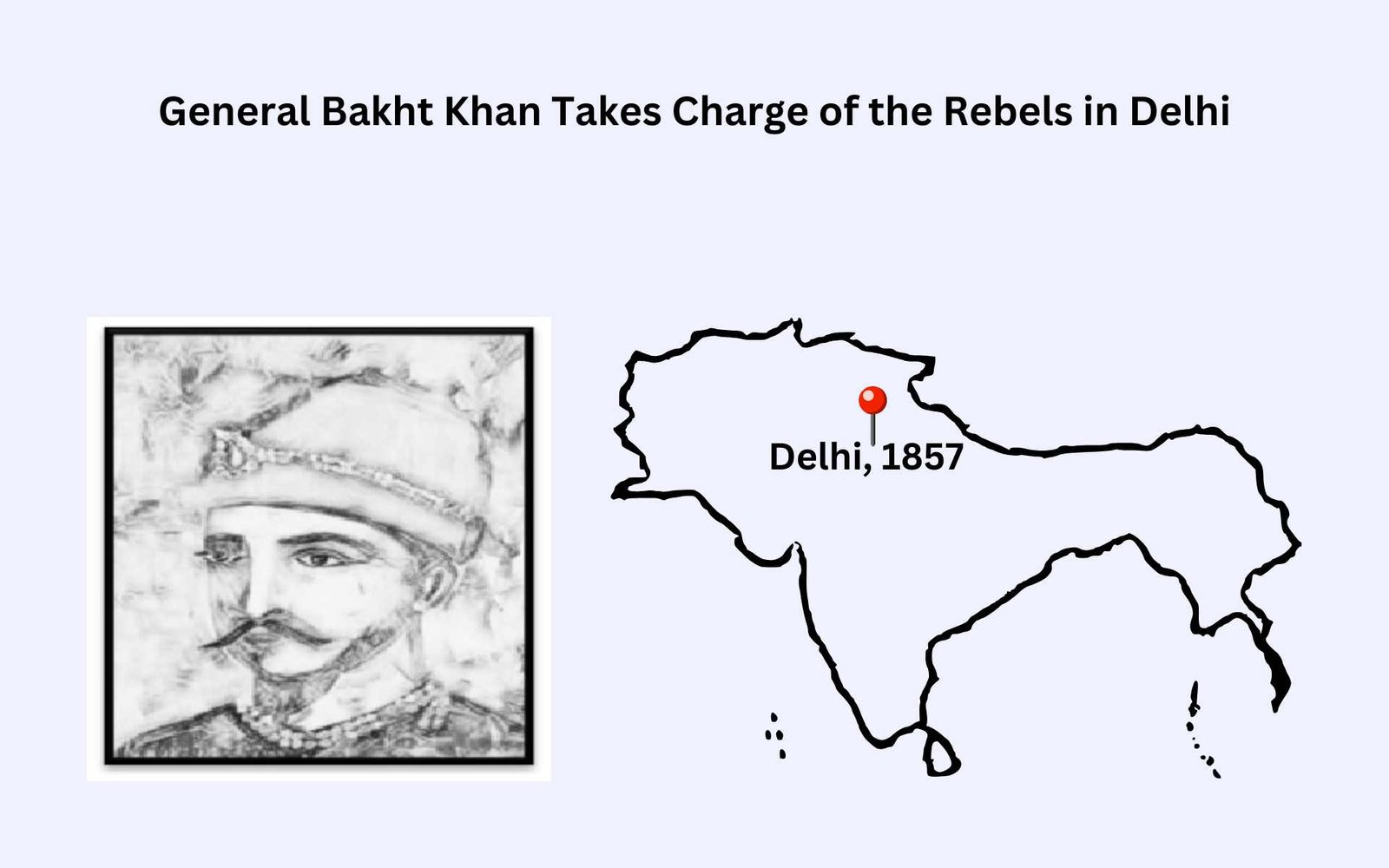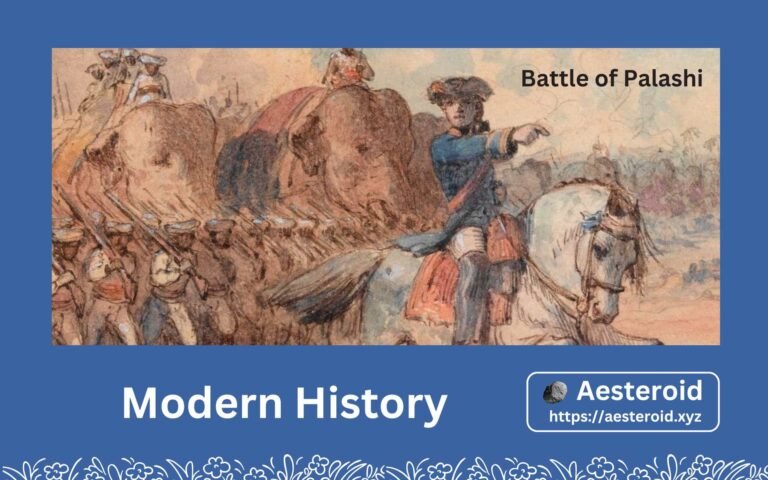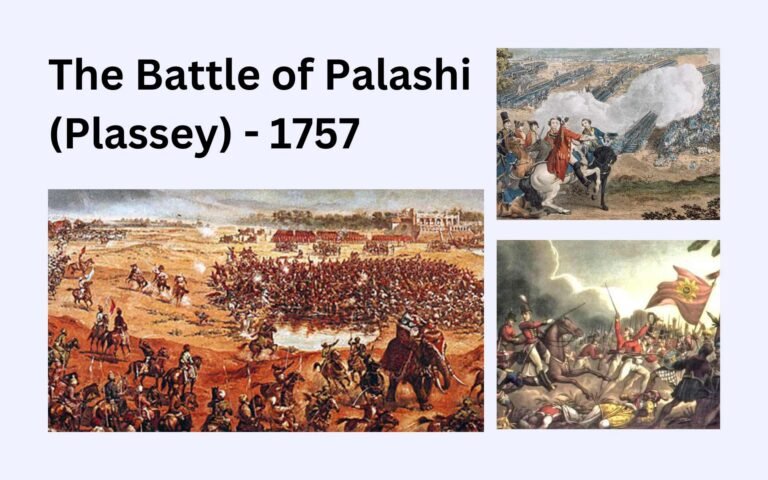During the 1857 Indian Rebellion (also known as the First War of Indian Independence), Bakht Khan replaced Mirza Mughal (son of then-Mughal Emperor Bahadur Shah Zafar II) as the commander of the rebel forces in Delhi after the latter’s death. This transition occurred due to a series of critical events that unfolded in the early stages of the rebellion, especially in and around Delhi, which was a focal point of the uprising.
Context of the Rebellion and the Role of Mirza Mughal
The rebellion began in Meerut on May 10, 1857, with the uprising of Indian soldiers (sepoys) against the British East India Company. The mutiny quickly spread to other parts of India, and many leaders emerged, including in Delhi. Mirza Mughal, son of the Mughal emperor Bahadur Shah Zafar II, was one of the prominent leaders of the rebels in Delhi.
He was made the figurehead general of the revolt and was proclaimed the “Emperor” by the rebels in Delhi after they seized the city on May 11, 1857, despite his lack of military experience.
Mirza Mughal’s leadership, however, was largely symbolic. While he held the title of General of the Rebels, the real military leadership was shared by other prominent rebels, and the administration was chaotic in Delhi. The lack of a strong, experienced military leader, as well as the disorganization among the rebels, posed significant challenges.
The Arrival of Bakht Khan
Bakht Khan was a military officer from the region of Rohilkhand who had previously served as a soldier in the British army before joining the rebellion. He was an experienced and capable commander, having held positions in the British army, and he had a reputation for his strategic military skills. His background and expertise made him a natural choice for taking a leadership role in the Delhi revolt.
As the situation in Delhi grew more dire for the rebels, Bakht Khan was sent to lead the military forces. On June 6, 1857, Bakht Khan arrived in Delhi, joining the rebels after a long journey from Meerut, where he had been gathering support and reinforcing rebel forces.
Mirza Mughal’s Decline
By the time Bakht Khan arrived in Delhi, Mirza Mughal’s leadership had already begun to face significant challenges. His leadership lacked the military experience necessary to face the well-trained British forces, who had begun a siege of Delhi in early June 1857. Mirza Mughal’s authority was also undermined by the fractious nature of the rebel leadership, with various factions vying for control, and there was a growing recognition that a more skilled and experienced military leader was needed.
Mirza Mughal’s role had already become largely ceremonial, and there was little hope that he could mount an effective defense of the city. In contrast, Bakht Khan was seen as a more capable military leader with better organization and tactical acumen.
Bakht Khan Takes Command
Once Bakht Khan arrived in Delhi, he quickly assumed control of the rebel military forces. He reorganized the defense of the city and began to lead the rebels with greater strategic coherence. Under his command, the rebels were able to better organize their forces, strengthen their fortifications, and launch more coordinated attacks against the British forces besieging the city. Bakht Khan’s leadership improved morale among the rebels, and his experience as a soldier was invaluable in the face of the British siege.
However, Bakht Khan was still facing a much better-equipped British army under General Sir Hugh Rose and others. Despite his efforts, the rebel forces were heavily outnumbered and lacked modern weapons, and the siege of Delhi continued throughout the summer.
Mirza Mughal’s Death and Bakht Khan’s Legacy
Mirza Mughal’s leadership continued to be overshadowed by Bakht Khan, who was taking the reins of military command. While the Mughal emperor’s symbolic status persisted, Mirza Mughal’s position became increasingly irrelevant as the rebels faced mounting pressure.
Eventually, during the British assault on Delhi, Mirza Mughal was killed in the fighting.
Bakht Khan continued to lead the defense of Delhi until the British forces finally recaptured the city on September 21, 1857. Despite his leadership, the rebellion in Delhi ended in defeat. Bakht Khan himself was forced to flee the city, and the British executed many of the rebel leaders after the fall of Delhi.
Frequently Asked Questions
1. Why did Bakht Khan switch sides in the Indian War of Independence in 1857?
Bakht Khan did not switch sides during the 1857 revolt. When he escaped Delhi after its fall on 20 Sep 1857 and when Bahadur Shah Zafar II surrendered, he reached the Terai plains near Awadh. His wounds proved fatal, and he is presumed to have died soon.



